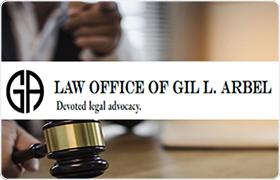Granada Hills Misdemeanor Lawyer, California
Sponsored Law Firm
-
 x
x

Click For More Info:
-
Law Office of Gil L. Arbel
28541 Conejo View Dr. Agoura Hills, CA 91301» view mapCriminal Defense Law Devoted Legal Advocacy
At the Law Offices of Gil L. Arbel, we understand that legal matters can be intimidating and complicated, which is why it is crucial to take an informed approach.
800-961-3980
Arvand Naderi
Criminal, DUI-DWI, Misdemeanor, Felony, Traffic
Status: In Good Standing Licensed: 20 Years
FREE CONSULTATION
CONTACTCecilie Erica Burdge Read
Dispute Resolution, Employment, Divorce, Misdemeanor
Status: In Good Standing Licensed: 19 Years
Diana Ivanova
Criminal, White Collar Crime, Misdemeanor, Felony
Status: In Good Standing Licensed: 8 Years
Garret Weinrieb
Felony, Misdemeanor, DUI-DWI, White Collar Crime
Status: In Good Standing Licensed: 21 Years
FREE CONSULTATION
CONTACTGregg Steven Garfinkel
Industry Specialties, Pension & Benefits, Employment, Misdemeanor
Status: In Good Standing
Michael M. Levin
Criminal, DUI-DWI, Felony, White Collar Crime, Misdemeanor
Status: In Good Standing Licensed: 29 Years
FREE CONSULTATION
CONTACT Gil L. Arbel Agoura Hills, CA
Gil L. Arbel Agoura Hills, CA Practice AreasExpertise
Practice AreasExpertise
